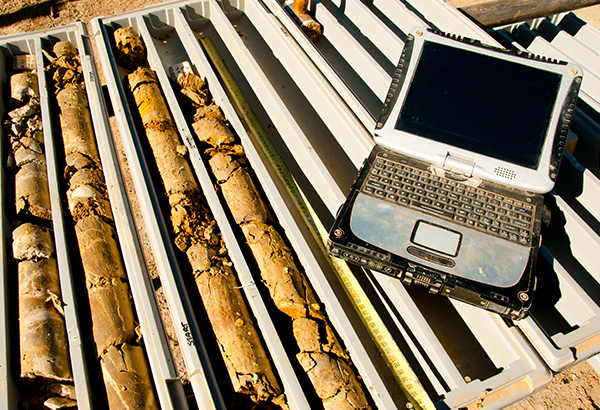
An Intensive 5-day Training Course
Basic Cased Hole Logging Tools
Introduction to Production Logging,
Cement Evaluation, Tubing Integrity & Perforation
Scheduled Dates
Classroom
| 18-22 May 2026 | Dubai - UAE | $5,950 | RESERVE A SEAT |
| 09-13 Nov 2026 | Dubai - UAE | $5,950 | RESERVE A SEAT |
Would an alternative date be more suitable?
We offer a variety of tailored training options, customized to meet your organisation's needs. Delivered anytime, anywhere, we make it easy to bring expert training directly to your team.
Why Choose this Training Course?
Most types of logs are used to characterize the reservoir behavior prior to install well completion; while several logging tools are available to provide information during production operations and beyond. This PetroKnowledge training course will discuss the various types of cased hole logging and how they can often be used to provide critical information to define production problems and diagnose remedial actions.
Cased hole logging tools are used to efficiently and accurately evaluate the well’s performance. They diagnose and verify potential issues in reservoir performance. Real-time, depth-correlated production data, including flow rates, pressures, gas/oil/water ratios and completion integrity status
Using these key production parameters, it is possible to evaluate production operations and diagnose potential problems such as water or gas breakthrough, crossflow, tubing leaks and this in turn will reduces downtime.
This PetroKnowledge training course will highlight:
- Identify what cased hole Logging is and categorize commonly used
- Distinguish cased hole logging tools including its purpose, benefits, and deliverables
- Identify the features and benefits of using Cased hole logging technology
What are the Goals?
At the end of this training course, delegates will learn to:
- Distinguish between different types of cased hole logging Tools including its purpose, benefits, and deliverables
- Determine the functions of downhole tools used throughout cased hole work with a surface acquisition system
Who is this Training Course for?
This PetroKnowledge production logging training course is suitable to a wide range of professionals and will greatly benefit:
- Production engineers
- Completion engineers
- Reservoir engineers
- Geologists
- Petroleum engineer
- Production technologist
How will this Training Course be Presented?
This PetroKnowledge cased hole logging training course will be presented using properly designed materials, and some animation on relevant issues. A manual containing all the slides and/or electronic type in PDF are going to be delivered to every attendant. Teaching methods include also pre and post evaluation test on related issues. Several examples of actual logging Programs will be presented.
Organisational Impact
- Maximize oil & gas recovery by identifying production problems and its remedial actions
- Reduce downtime with proper planning for workover/rigless operations by utilizing cased hole logging information
- Increase well integrity monitoring by defining cement and completion integrity
Personal Impact
- Identify what cased hole Logging is and categorize commonly used
- Distinguish cased hole logging tools including its purpose, benefits, and deliverables
- Identify the features and benefits of using Cased hole logging technology
- Identify cross flow in multiple zone completion and define remedial actions
- Know the basic of cased hole perforation best practices and selection criteria
- Know how to detect tubing leaks and remedial actions with mechanical repair
Daily Agenda
Day One: Introduction to Basic Reservoir Characteristics & Production System
- Inflow performance and productivity index for oil wells and gas wells
- Outflow performance: matching inflow with outflow to optimize well productivity
- Well completions applied to vertical, deviated and horizontal wells
- Reservoir Fluids: fluid properties: GOR, Bubble point Pressure
- Reservoir drive mechanisms and associated production problems
- Flow Regimes in vertical and deviated wells and slippage velocities
Day Two: Production Logging tools & Application
- Meaning of production logging and its basic downhole string.
- Define and estimate the 3-fluid phase velocities
- Production logging in vertical/deviated/horizontal wells
- Cross flow identifications and remedial actions
- Spinners, inline and full-bore measurement philosophy
- Measurements of three phase holdups
- Tools calibration and logging data measurement
- Depth control in cased hole wells using GR and CCL
Day Three: Tubing String Integrity & Corrosion Monitoring
- Corrosion Mechanism and Corrosion Monitoring
- Pressure control system for rigless operation
- Leak Detection using temperature log and PLT
- Leak detection with mechanical multi finger tools
- Limitation of multi finger tools
- Tubing leak repair with straddle pack off
- Straddle pack off design and installation
- Example of leak detection and repair program
Day Four: Cement Evaluation Log, Saturation Logging & Special Cased Hole Logging Tool
- The cementing operations and the function of cement
- Effects of cement quality on oil & gas production
- Cement evaluation log CBL-VDL and ultrasonic tools
- Cement repair job discussion
- Reservoir saturation tools and its application
- Gravel pack evaluation log
Day Five: Perforating Theory & Selection
- Principles of Shaped Charges
- Skin damage due to perforation
- Perforating Gun Systems
- Optional techniques for Perforating
- Wire line Conveyed Casing Guns.
- Wire line Conveyed through Tubing Guns
- Tubing Conveyed Perforating Guns
- Mechanical Firing
- Advantages of TCP
- Disadvantages of TCP
- Operational Considerations
- Perforation Gun Selection
- Perforation Charge Performance
- Perforating Options
Certificate
- On successful completion of this Training Course / Online Training Course, a PetroKnowledge Certificate / E-Certificate will be awarded to the delegates.
